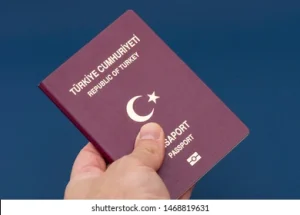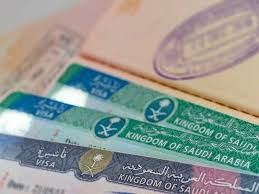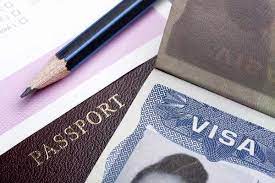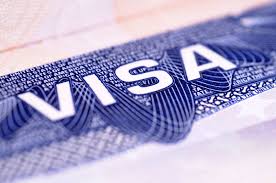
Are you planning to travel to India for medical treatment but don’t know how to navigate the visa process? Look no further! Our ultimate guide to medical visa for India has got you covered. From eligibility criteria and required documents to application procedures and processing times, we’ve compiled everything you need to know in one comprehensive resource. So, sit back, relax, and let us take the reins as we guide you through this important aspect of your journey towards better health. Medical Visa for India
Introduction to Medical Visa for India
Are you looking for a medical visa for India? If so, you’ve come to the right place! In this ultimate guide, we will cover everything you need to know about getting a medical visa for India, including the different types of medical visas available, the eligibility requirements, and the application process.
There are three types of medical visas available for foreigners seeking treatment in India: the Medical Visa (MV), the Medical Attendant Visa (MAV), and the e-Medical Visa (e-MV). The MV is valid for up to 1 year and allows multiple entries, making it ideal for those who need to receive prolonged or frequent medical treatment in India. The MAV is valid for up to 1 year and allows only one entry; it is intended for those who are accompanying a patient who is receiving treatment in India. The e-MV is a new type of visa that was introduced in January 2017; it is valid for up to 60 days and allows multiple entries. To be eligible for an e-MV, you must have a passport with at least 6 months of remaining validity and a confirmed appointment with a doctor or hospital in India.
If you meet the eligibility requirements, you can apply for a medical visa by filling out an online application form on the website of the Consular Passport and Visa Division of the Ministry of External Affairs of India. You will need to upload scanned copies of your passport, passport photo, and other required documents Indian Visa from Australia
Eligibility Criteria for Medical Visa
There is no single answer to the question of who is eligible for a medical visa to India. The Indian government has set up a number of different categories of medical visas, each with its own eligibility criteria. In general, however, most medical visas to India will require that the applicant:
– Be seeking medical treatment in India that is not available in their home country
– Have a letter from a doctor or hospital in India confirming the need for treatment in India
– Have all necessary documentation (passport, visa application form, etc.) in order
The specific requirements for each type of medical visa can vary slightly, so it’s important to check with the Indian embassy or consulate in your home country before applying.
How to Apply for a Medical Visa?
There are two types of medical visas for India: the Medical Visa (M) and the Medical Attendant Visa (MX). The Medical Visa is for those seeking medical treatment in India, while the Medical Attendant Visa is for those accompanying a patient who is seeking medical treatment in India.
To apply for a medical visa, you will need to submit the following documents:
– A completed visa application form
– A passport-sized photograph
– Your passport
– A letter from your doctor or hospital in India confirming your appointment or admission
– Evidence of financial means to cover your stay in India, such as bank statements or a letter from your sponsor
– A yellow fever vaccination certificate if you are coming from a country where yellow fever is endemic
Once you have gathered all of the required documents, you can apply for a medical visa by mail, in person, or online.
Documents Required for a Medical Visa
To obtain a medical visa for India, you will need to submit the following documents:
-A completed visa application form. This can be obtained from the Indian embassy or consulate in your home country.
-Your passport, which must be valid for at least six months from the date of your planned arrival in India.
-Two recent passport-sized photographs.
-A letter from your doctor or medical facility in India confirming your appointment and treatment details.
-Proof of financial means to cover the cost of your medical treatment and stay in India. This could include bank statements, credit card statements, or a letter from your sponsor confirming that they will cover your expenses.
Fees and Processing Time for a Medical Visa
The fees for a medical visa to India are as follows:
– Single entry: USD 60
– Multiple entry (valid for one year): USD 150
– Multiple entry (valid for five years): USD 300
The processing time for a medical visa is usually between four and eight weeks, but it can vary depending on the embassy or consulate.
Benefits of Obtaining a Medical Visa in India
If you are seeking medical treatment in India, you may be able to obtain a medical visa. This type of visa allows you to stay in India for up to six months for the purpose of receiving medical care. There are a number of benefits to obtaining a medical visa for India, including:
- Access to world-class healthcare: India is home to some of the best hospitals and healthcare facilities in the world. By obtaining a medical visa, you will have access to these top-notch facilities and be able to receive the quality of care that you deserve.
- Affordable treatment: Treatment costs in India are often a fraction of what they would be in other developed countries. This can help you save substantial amounts of money on your medical bills.
- A convenient location: India is conveniently located and easy to travel to from many parts of the world. This makes it an ideal destination for those seeking medical treatment abroad.
- A rich culture: India is a country with a long and rich history and culture. By Obtaining a medical visa, you will have the opportunity to experience this unique culture firsthand while receiving the high-quality medical care that you need.
Alternatives to the Medical Visa
There are a few alternatives to the medical visa for India. The first is to apply for a business visa. This type of visa allows you to stay in India for up to six months and can be renewed for another six months. However, this type of visa does not allow you to work in India. The second alternative is to apply for a student visa. This type of visa allows you to stay in India for the duration of your studies, which can be up to five years. There is the option of applying for a tourist visa. This type of visa allows you to stay in India for up to six months and can be renewed for another six months.
Conclusion
In conclusion, if you plan to visit India for medical purposes, the process of applying for a medical visa can seem complicated. However, by taking the time to familiarize yourself with the requirements and following our guide step-by-step, you should be able to obtain your medical visa in no time. We hope this article has been helpful and provided you with all the information that you need!





